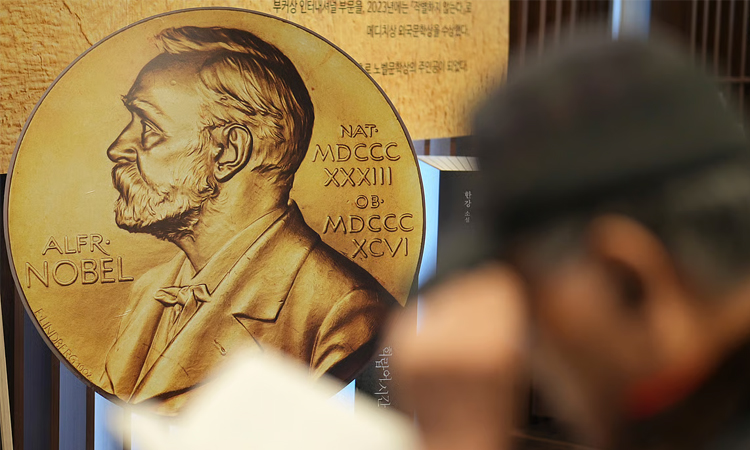News Flash
News Flash

STOCKHOLM, Oct 13, 2025 (BSS/AFP) - The Nobel economics prize wraps up the 2025 season when it is announced on Monday, as experts say this year's prize could honour research on artificial intelligence or inequality.
The winner or winners of the prestigious prize will be announced at 11:45 am (0945 GMT).
Last year it went to Turkish-American Daron Acemoglu and British-Americans Simon Johnson and James Robinson for research into wealth inequality between nations.
Predicting winners is not an exact science, and the nomination and selection process is shrouded in secrecy.
But prize watchers have their strategies to narrow down the contenders.
For Micael Dahlen, a professor at the Stockholm School of Economics, it is important to look at the disciplines recognised in previous years.
"Information economics is a strong contender," Dahlen told AFP, noting the field was last spotlighted for the 2016 prize.
"In recent years, especially with AI, the field has become highly topical," he said.
A strong candidate would then be American economist Erik Brynjolfsson, according to Dahlen.
Dahlen also floated the name of Germany's Monika Schnitzer, a prominent economist in the field of international economics.
- Public perception -
In the same field, the committee could also give the nod to American Susan Athey, who explores how new technologies transform markets and public policies, Mikael Carlsson, a professor at Uppsala University, explained.
Women have been underrepresented among winners of the economics prize.
Of the 96 laureates honoured since 1969, only three have been women.
"No one is insensitive to how decisions are perceived," Magnus Henrekson of the Research Institute of Industrial Economics in Stockholm told AFP.
The 2025 Nobel season has so far awarded two women: American Mary Brunkow, who was co-recipient of the medicine prize, and Venezuelan opposition leader Maria Corina Machado who won the Nobel Peace Prize.
The economics prize is the only Nobel not among the original five created in the will of Swedish scientist Alfred Nobel, who died in 1896.
It was instead created through a donation from the Swedish central bank in 1968, leading detractors to dub it "a false Nobel".
"If he had written his will today, I believe that economics would be included, as it is so important for our understanding of world events and how we can improve our societies," Dahlen said.
Like for the Nobels in chemistry and physics, the Royal Swedish Academy of Sciences chooses the winner and follows the same selection process.
- Inequality -
The 2025 edition could honour economists working on wealth inequalities, such as French-American Emmanuel Saez or France's Thomas Piketty, according to researchers at the University of Gothenburg.
"Their international comparisons and open databases have made the debate more evidence-based and strengthened our understanding of how different tax systems can reduce inequality without hampering economic development," economics professor Olof Johansson Stenman said in a comment.
French economist Gabriel Zucman could also be a contender together with the pair, though the fact that he has recently come into the spotlight in France for a proposal to tax the ultra-rich might deter the academy from making what could be considered a controversial choice.
"That might discourage them," Henrekson speculated.
In 2023, Zucman won the John Bates Clark Medal, an award often seen as a potential precursor to the Nobel, with 17 percent of its recipients later going on to win the Nobel.
Other names mentioned as possible laureates are Belgian Marianne Bertrand and American Sendhil Mullainathan.
Research firm Clarivate, which lists potential winners based on the number of citations, spotlighted the duo for their research into racial discrimination and labour economics influenced by psychology and culture.
Swiss economist Ernst Fehr, who specialises in behavioural economics and neuroeconomics has also been floated and could share the prize with Americans George Loewenstein and Colin Camerer.
Analysts have also pointed to Japan's Nobuhiro Kiyotaki and Britain's John Moore for their work on how small shocks can affect economic cycles.
The Nobel economics prize consists of a diploma, a gold medal and a $1.2 million cheque.